Discover The Value of Using The Blue Letter Bible Website
I love BlueLetterBible.com. It’s as valuable to my Bible study as my pen — and I love my fine point pen.
When I study a chapter of the Bible, I first read through it carefully in my Bible word by word, phrase by phrase and make my own personal notes with my perfect pen.
My studying will often produce questions I can’t answer, so I turn to one of my favorite resources: BlueLetterBible.com.
What’s so great about The Blue Letter Bible?
There’s more to this website than I can feature today, but that’s okay because one of their great features is the many website tutorials. No need to fumble around, trying to figure it out yourself.
Click the link to be taken to their video tutorials help page: BLB Help — Video Tutorials
If you prefer to read, here are their non-video help tutorials: BLB Help Tutorials
Now I’ll give you the bare basics of BLB, and how I use it every day. I’ll walk you through a short example of my using BLB to study Genesis 3.
Using BLB to study Genesis 3:
You can click the blue links below to see the features in the actual BLB website. Click on the photos to see a zoomed image of the photo.
1. Translations/Versions
Every Chapter in the Bible is listed in various translations or versions.
First, I studied Genesis 3 in my ESV Study Bible.
Then I pulled it up on BLB.
Here’s the link to it on BLB: Genesis 3
You can choose from many translations/versions located in the upper right corner. For this example, I pulled up the NIV.
2. Verses
BLB sets off every verse by itself and supplies various tools for studying them.
For this example, let’s look at Genesis 3:1.
To do that, I clicked on the words: Gen 3:1, which took me to the tools available for this verse.
A. Interlinear Tab
When you click on a verse, BLB defaults to the Interlinear tab, which means it gives a word for word translation of the verse in Hebrew, Aramaic, or Greek, depending on the original language in the Bible.
Hang in there. This is more exciting than it sounds.
For example, we see in the Interlinear tab that the word used here for LORD is Yehovah (Jehovah).
NOTE:
Jehovah is the English transliteration of the original Hebrew word: YHVH or the alternative transliteration of Yahweh.
Read this article by Don Stewart on BLB about God’s name: Why Is God Called Yahweh (Jehovah).
I remembered from studies I’d done before that the name Yahweh/Jehovah is the name God used most often when referring to His having a personal covenant relationship with man. (See my post: What’s in a Name?)
I then noticed that the word for God is Elohiym (Elohim).
I’d already learned the meaning of Elohim from my previous study of this word in BLB, but for our example, let’s look at it.
B. Strong’s Lexicon
To look at the meaning of the Hebrew word Elohim, I clicked on the Strong’s Lexicon number for the word H430.
If I had clicked on the word “God,” I would have been taken to a concordance — a list of every place in the Bible where the word “God” is used. There are also wonderful tools available there. (You’ve got to click around and have fun.)
When I clicked on H430, I could see the various meanings for the word. By looking at them all, I could sum up Elohim’s meaning as: God is the one true, God.
When reading this verse in the Bible word by word, I’d noticed something interesting concerning this word, which is what sent me to BLB.
The verse says that the serpent was more crafty than any beast … that the “LORD God” had made. But, then we see when the serpent talks with Eve, that he refers to God not as “the LORD God,” (Jehovah Elohim) but as simply “God” (Elohim).
I also noticed that when Eve quoted God to the serpent, she also used only His name Elohim, not Jehovah Elohim. I found that intriguing.
I wanted to see if Eve ever referred to God as Jehovah Elohim or only as Elohim. I needed a concordance.
C. Concordance
After each Strong’s definition, BLB provides a concordance of the word, which means a listing of each place in the Bible where the word is used.
(You can also see a concordance by clicking on the English word in the Interlinear tab, as I mentioned above.)
The Bible explains itself, so a concordance is valuable.
Scrolling down to the concordance, I looked to see where else Elohim and Jehovah Elohim were used. What I found made me stop and think.
When God created the world, He was called Elohim. (Genesis 1 – 2:3). But when He created man, He was called Jehovah Elohim (Genesis 2:4).
The Bible continues to call God Jehovah Elohim until the serpent says God’s name. The serpent referred to God as Elohim.
I know from studies I’ve read that the serpent is Satan. To me, the fact that Satan doesn’t call God Jehovah or Jehovah Elohim, but rather Elohim, is Satan acknowledging that, yes, God is the one true God, but he doesn’t claim a relationship with God.
Satan refuses to see God as Jehovah, but he can’t deny that God is Elohim.
I then wondered if Eve called God Jehovah or Elohim.
NOTE:
It’s fine to wonder so long as we don’t try to make Scripture mean something God never intended it to mean.
There are many different applications of a verse, but there is only one correct interpretation, and it’s the one God intended in the original text.
But wondering can be good when it leads us deeper into God’s Word.
Wondering is what led me to realize that Jesus accomplished our salvation on the cross, not in the grave.
I was reading through the Gospel of John and wondered what He meant in John 19:30 when He said, “It is finished.”
What is finished? His life? His suffering?
And then it hit me. His work of salvation was finished. He’d fully paid the penalty for our sin, having endured the full wrath of God on the cross.
Diving deeper into Scripture affirmed my realization through the writings of the apostles.
But I’ve gotten off track here. Let’s get back to Genesis 3.
Using the concordance, I saw that she called God Elohim, like the serpent did.
Well, then I had to see if she ever called God, LORD (Jehovah).
I went back to the interlinear tab and clicked on the word LORD. This took me to a concordance.
I could have also gotten to a concordance by clicking on the Strong’s number for Jehovah (H3068).
I scrolled down the concordance until I saw that in Genesis 4:1, Eve called God LORD (Jehovah) when He gave her a son, Cain.
This was a beautiful picture to me of her eyes being on her relationship with God when He gave her a son, who was a confirmation that God would indeed fulfill His promise to them to send the Savior. (God gave them this promise in Genesis 3:15)
This led me to wonder if the serpent did indeed intentionally refuse to call God Jehovah.
I also wondered if Eve, in the midst of her temptation and sin, had viewed God only as Elohim instead of considering her Jehovah relationship with Him.
I wondered what might have happened if she’d focused on God as Jehovah Elohim that day. It reminded me of 2 Corinthians 5:14 where Paul says that the “love of Christ controls him.”
I wondered if Eve would’ve resisted the temptation if she’d focused on God as Jehovah Elohim, the God in a love relationship with His children?
There’s no way to know what she would have done because the Bible doesn’t say, and we never want to add to Scripture or take away from it.
The questions I wondered sent me to the commentaries to see what the professionals had to say.
3. Commentaries
The Commentaries tab offer a wealth of information written by Biblical scholars, who I affectionally call “the professionals.”
Some of the resources in the commentaries tab are teachings about the actual chapter, or they’re about subjects related to the chapter’s topic(s).
In the interest of keeping this post from going on too long, I’m only going to share the next three resources on BLB without continuing our look at Genesis 3:1
I think you’ve gotten a good enough picture of how valuable the BLB site is, which was my point.
4. Bible Translations
The Bible Translations tab offers many different translations.
I find it helpful to read the same verse in different translations.
It gives me a fuller picture of its meaning.
In this Bibles tab, you can actually drag the translations around, putting them in the order you want.
You’ll see a little hand ready to grab the blue box with the translation abbreviation.
5. Cross References
The cross-reference tab lists other verses in the Bible where you’ll find the same themes, topics, or important words.
I love this feature because Scripture interprets Scripture.
A good cross-reference tool makes it easier for us to find Scripture’s explanation of itself and gain a fuller understanding of a subject.
It might even save you from having to check a commentary.
Your Bible may have a cross-reference, but this one allows you to read them with a simple click.
I have to admit, I love using www.Biblehub.com for its cross-references as well.
6. Dictionaries
There are numerous interesting dictionaries to take you deeper into various topics based on words or subjects in the verse.
There’s ao much here you’ll probably never have time to study them all.
One day I hope to take more time to delve into these to discover the gold they contain.
7. Miscellaneous
The miscellaneous tab is where they put all the stuff that doesn’t belong in the other tabs. It can be a lot of fun. Maps, timelines, art, etc.
There’s much more to BLB than I’ve shown you, but I hope I’ve gotten you excited to check it out for yourself.
Dig in and have fun studying!
Have you used the Blue Letter Bible website before? I’d love to hear what you love about it most. Please leave a comment, and pass this on to your friends so others can benefit from their resources.
[bctt tweet=”Discover 7 reasons to use this great free online Bible study tool: Blue Letter Bible @BlueLetterBible #biblestudy #bibleresources” username=”jeanwilund”]


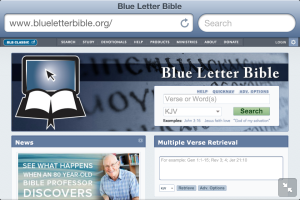
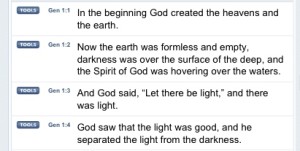
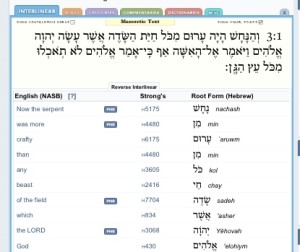
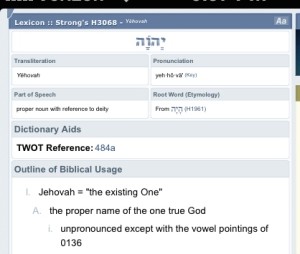
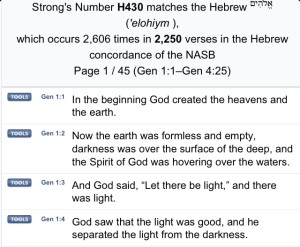
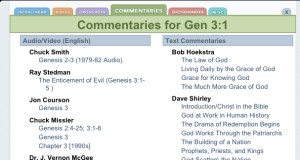
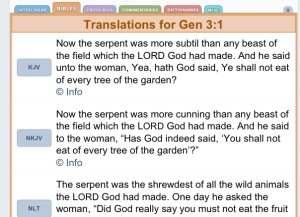
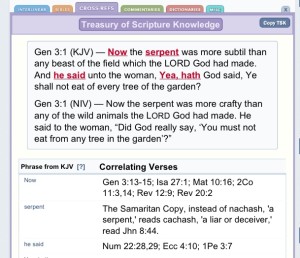
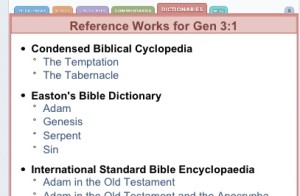
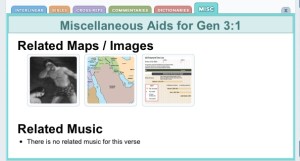


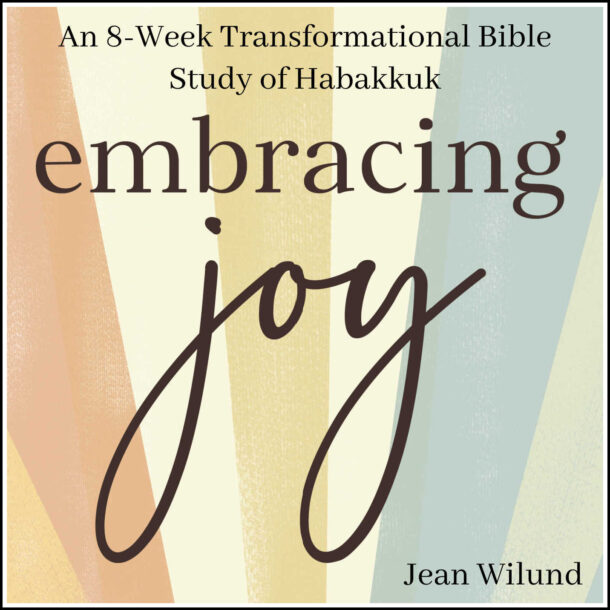



Oh my goodness! What a wonderful site. How have I not known about this? Thank you for featuring it today. You have done a beautiful job of covering a wealth of information. I am excited to have this new resource for my study and can’t wait to get started. I continue to enjoy your study tips and insight. Thank you, my sweet friend. Have a wonderful and safe 4th. Starr
I’m so glad you found this post helpful. I obviously LOVE the Blue Letter Bible website. I can’t remember when I discovered it, but ever since, I’ve been stuck on it. 🙂 Thanks for your kind words! Enjoy your 4th of July as well!! 🙂